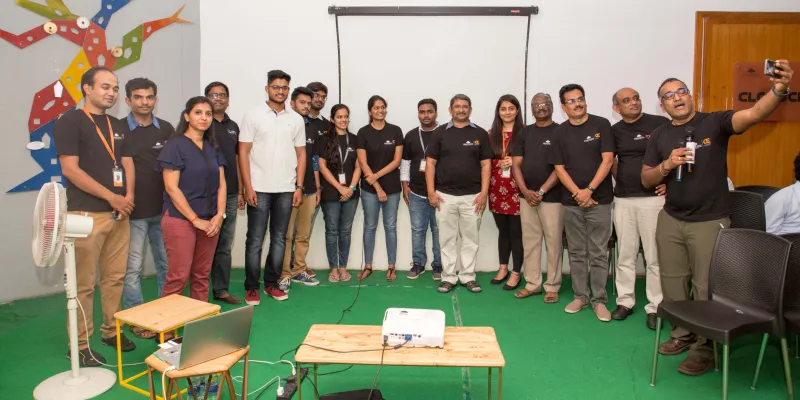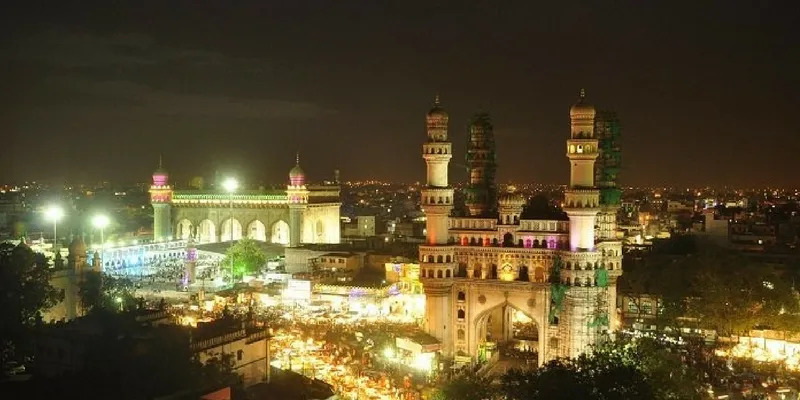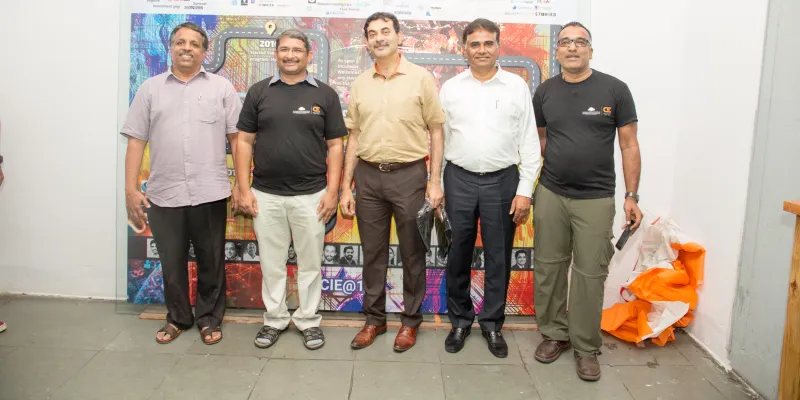14 Hyderabad-based deep tech startups to watch out for this year
These Hyderabad-based deep tech startups are leading the way with their work on deep tech products in the AR/VR space, health tech and devices, agritech, and waste management, among others.
From government-led policies to ease of doing business and building an ecosystem that promotes mentorship and development, Hyderabad has been walking the startup talk for a while now. The City of Nizams is also home to T-hub, one of the most ambitious incubator projects led by a state government.
Hyderabad is now shining the spotlight on deep tech, which is taking the world by storm due to its enabling power, the potential to catalyse change, and the differentiation it can lead to.
IIIT Hyderabad recently organised a showcase of some deep tech and product startups that have been a part of its Centre for Innovation and Entrepreneurship (CIE) since 2008.
CIE has, to date, supported over 200 startups, and made seed investments in over 30 of them. The team adds that the startups in its portfolio have raised Rs 50 crore in external funding. Last week, the foundation showcased a few startups working on deep tech products in the AR/VR space, health tech and devices, agritech, waste management, and several others.
The 14 startups to watch out for in the deep tech space are:
- Docturnal
With one-third of the world’s population infected with tuberculosis (TB), the disease is a leading cause of death. Docturnal aims to deal with this disease with its app TimBre. An individual coughs into a special microphone attached to a mobile device, which is connected to TimBre. This is a screening app, where the sound of the cough is recorded (using a microphone array) by a medical practitioner or healthcare worker along with their demographic and clinical variables.
The data is then processed in real time, leveraging machine/deep learning to detect if the patient is TB positive or negative. The team is also working on building products to detect other lung disorders and infections.
2. Fabulyst
While shopping has gone online, wouldn’t it be cool to get an online trial room? This is exactly what Fabulyst does. This AI-assisted platform works as a virtual trial room assistant. The platform gives you assisted recommendations based on your body type, skin tone, and other details. It also gives a customer options based on styles and occasions. Fabulyst now is a B2B platform that claims to have Flipkart as a customer.

3. Imaginate
This IIIT-incubated startup helps build unique products using AR. Working across sectors like healthcare, ecommerce, tourism and even defence, the aim of Imaginate is to provide real-time collaboration of 3D data across different geographies, which reduces lead time in design evolution of different physical products. The team particularly believes it has great benefits in healthcare.
It is currently working on LivAR, a product that helps in open liver surgeries. Its product, HeritageAR, guides users across different heritage platforms. It also is working on ShootAR, an AR soldier-training platform.
4. Indriyn
Indriyn uses IoT to collect building data from all sources and continuously feeds it into a cloud-based analytics engine, where machine learning algorithms detect faults, energy leakages, odd patterns, and make predictions. The algorithms are customised to build energy data.
Commercial Real Estate (CRE) buildings waste up to 30 percent energy and underperform due to lack of accurate and detailed building data. Indriyn helps CRE buildings to operate smoothly and efficiently, and reduce operational costs and energy bills.
5. MerkleTree Labs
A startup in the Blockchain technology space, MerkleTree Labs helps develop Blockchain apps that suit different business needs. It offers smart contracts, where digitised terms can be implemented automatically once all the conditions are met, and it works on tokenisation that helps protect sensitive information.
6. MyAlly
MyAlly allows and helps recruiters solve different challenges that form pain points in talent acquisition. It primarily leverages AI and machine learning to do so. The platform helps co-ordinate the end-to-end candidate selection process from interviews to management of candidates through the pipeline, and even automates the process of candidate evaluation.

7. NicheAI
NicheAI develops apps for deep learning-enabled computer vision problems. NicheAI has multiple applications, including fraud detection at toll plazas and auto insurance (the startup has been assisting insurance companies analyse claims images and videos to disburse insurance claims).
8. Onward Assist
A predictive healthcare analysis platform with a core focus on oncology, Onward Assist is building different automated diagnostic tools, which serve as assistants to pathologists. It provides valuable insights, which are passed on to oncologists. The team is also looking at risk scoring for patients.
9. Psynapce
Pregnancy can be a period of heightened stress and Psynapce empowers expectant parents with tools that help them de-stress. The main offering is powered by an Android and IOS app (in the works); the team has used conversational AI in building chatbots that help answer common queries. The team aims at enabling a holistic, technology-enabled ecosystem where the spouse, family, friends, doctors, and other expectant couples come together.
10. Qalaxia
Qalaxia is building an expert and AI-driven Q&A platform where students anywhere in the world can get answers to their questions, including on homework. The automated teacher's executive assistant (Téa) and experts provide the best answers to students’ questions at their convenience. For questions on homework Téa responds with a sequence of steps that the student can follow to answer the question.
The team is using ML and NLP, combined with the wisdom and expertise of the crowd, to solve this problem. It is building an AI engine that continuously learns from expert feedback to automatically provide scaffolding steps for homework questions.
11. Rayd8
Rayd8 is fighting preventable blindness in low-income countries. Using pure data science, Rayd8 became a part of NASSCOM Deep Tech Club.
The team realised the need for good quality retinal images for eye testing and in detecting blindness. They, therefore, brought to life research work on smartphone-based retinal imaging.

12 RevOs
While AI-assisted and driven cars aren’t new, AI-enabled and an IoT platform for two and three-wheelers is. RevOs aims to make these vehicles “smart” in terms of vehicle analysis, control and visualisation. Its custom hardware monitors and controls components like the motor controller, battery management system, and electric fuel injectors.
With dashboards and apps for data analytics, and diagnostics, it makes for smooth interactions between customers, suppliers and distributors. It has added benefits for suppliers with streamlining of production, delivery and assembly of components, with the ultimate goal of increased sales through insights on component-tracking and performance.
13. TalkaDoc
Using NLP and deep learning, TalkaDoc is enabling specialty hospitals integrate mental illness as a prophylactic screening programme with other chronic illnesses, thus hastening detection time. With their in-built tele-health and offline tele-health centres, the team focuses on taking care closer to rural areas and making it more accessible and affordable.
This comprehensive Mental Health Information Management System (MHIMS) is designed to track patients' outcomes. The speech-driven “Virtual Conversation Agent” saves a significant amount of time for a healthcare practitioner, allowing the treatment of more patients and cost reduction.
14. Thanos
Thanos uses aerial robotics (drone technology) to solve the problem of pesticide spraying in farms. The product is an Autonomous Aerial Spraying Platform that sprays an acre in as little as 15-20 minutes; this is done in a uniform and efficient manner without the need for any manual presence on the field.
The team had, in 2016, built aerial surveying solutions which included contour mapping, elevation and terrain mapping, 3D modelling, and such applications, but realised over an year that there was very little entry barrier to these.
Anybody with an off-the-shelf drone could get started on the same. In mid-2017, they started looking for an actual problem and zeroed in on agritech.







